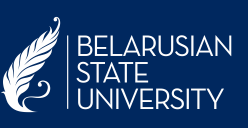
 |
Ïåäàãîãèêà èíôîðìàòèêè |
PEDAGOGY OF COMPUTER SCIENCE |
ISSN 2708-4124 |
|
INFORMATION APPROACH IN THE DEVELOPMENT OF ARTIFICIAL INTELLIGENCE TECHNOLOGIES BY SCHOOLCHILDREN O.M. Korchazhkina FULL TEXT: PDF (Rus) Abstract The article focuses on how to form and develop the students’ ability to work with various forms of information sources at the level of basic and secondary general education in an in-depth Computer Study school classes within Natural Sciences and Technology programs. To master the section “Fundamentals of Artificial Intelligence and Data Analysis” and learn modern programming languages, future engineering and technical specialists need an advanced stage of mathematical training. The latter was embodied in the tasks of the First All-Russian Olympiad in Artificial Intelligence for students of VIII-XI grades of secondary school, which was held in October-November 2021 online. Key words Information approach, mathematical thinking, data analysis, artificial intelligence, All-Russian Olympiad in artificial intelligence. Received: 10/20/2022; accepted for publication: 10/28/2022. For citation: ________________________________________ Korchazhkina O.M. Information approach in the development of artificial intelligence technologies by schoolchildren. Electronic scientific and methodological journal “Pedagogy of computer science”. 2022;1-2. Http://pcs.bsu.by/2022_1-2/3ru.pdf Content is available under license Creative Commons Attribution-NonCommercial-ShareAlike 4.0 International License. About the authors: O.M. Korchazhkina
References 1. Semenyuk E.P. Informacionnyj podhod i realii sovremennosti [Information approach and the realities of modernity]. Nauchno-tekhnicheskaya informaciya. Seriya 1. Organizaciya i metodika informacionnoj raboty. 2013; 1: 1-11. (In Russian) 2. Semenyuk E.P. Informacionnyj podhod k poznaniyu dejstvitel'nosti [Information approach to the cognition of the reality]. Kiev: Naukova dumka, 1988. 240 p. (In Russian) 3. Korchazhkina O.M. Process poznaniya s pozicii informacionnogo podhoda [The process of cognition from the information approach viewpoint] // Kommunikativnye strategii informacionnogo obshchestva: trudy XIII Mezhdunar. nauch.-teor. konf., 22–23 oktyabrya 2021 g. Saint-Peterburg: POLITEKH-PRESS, 2021. 340 p.: 27-30. (In Russian) 4. Korchazhkina O.M. Sostavlyayushchie inzhenernogo myshleniya i rol' IKT v ih formirovanii [Components of engineering thinking and the role of information in their formation]. Informatika i obrazovanie. 2018; 6: 32-38. (In Russian) 5. Samylkina N.N. Organizaciya uglublennogo obucheniya informatike na osnove integrativnogo podhoda [Organization of advanced computer science education based on an integrative approach]. Moscow: MPGU, 2020. 346 p. (In Russian) 6. Korchazhkina O.M. Ot aksiomaticheskogo k sinergeticheskomu podhodu v obrazovanii [From the axiomatic to synergetic approach in education] // Kommunikativnye strategii informacionnogo obshchestva: trudy XII Mezhdunar. nauch.-teor. konf., 23–24 oktyabrya 2020 g. Saint-Peterburg.: POLITEKH-PRESS, 2020. 363 p.: 218-221. (In Russian) 7. Baksanskij O.E., Kucher E.N. Kognitivno-sinergeticheskaya paradigma NLP: Ot poznaniya k dejstviyu [Cognitive-synergetic paradigm of NLP: From cognition to action]. Moscow: KRASAND, 2010. 184 p. (In Russian) 8. Poincare H. Matematicheskoe tvorchestvo [Mathematical creativity] / V kn. Adamar Zh. Issledovanie psihologii processa izobreteniya v oblasti matematiki [A study of the psychology of the invention process in the field of mathematics]. Moscow: «Sovetskoe radio», 1970. 152 p.: 135-145. (In Russian) 9. Adamar Zh. Issledovanie psihologii processa izobreteniya v oblasti matematiki [A study of the psychology of the invention process in the field of mathematics]. Moscow: «Sovetskoe radio», 1970. 152 p. (In Russian) 10. Jones M. Reshenie problem po metodike specsluzhb. 14 moshchnyh instrumentov [The Thinker’s Toolkit: Fourteen Powerful Techniques for Problem Solving]. Moscow: Mann, Ivanov i Ferber, 2017. 432 p. (In Russian) 11. Simon H. Nauki ob iskusstvennom [The Sciences of the Artificial]. Moscow: Editorial URSS, 2004. 144 p. (In Russian) 12. Kalinin I.A., Samylkina N.N. Informatika. 11 klass. Uglublyonnyj uroven' [Computer Science. 11th grade. Advanced level.]. Moscow: BINOM. Laboratoriya znanij, 2018. 216 p. (In Russian) 13. Samylkina N.N., Salahova A.A. Obuchenie osnovam iskusstvennogo intellekta i analiza dannyh v kurse informatiki na urovne srednego obshchego obrazovaniya: monografiya [Teaching the basics of artificial intelligence and data analysis in a Computer Science course at the level of secondary general education]. Moscow: MGPU, 2022. 228 p. (In Russian) 14. Samylkina N.N., Kalinin I.A. Reshenie zadach otborochnogo i osnovnogo etapov pervoj vserossijskoj olimpiady po iskusstvennomu intellektu dlya uchashchihsya VIII-IX klassov [Solving the problems of the preliminary and main stages of the First All-Russian Olympiad in Artificial Intelligence for students of 8th-11th grades] // Informatika v shkole. 2022; 3: 67-74. (In Russian) 15. Grigor'ev S.G., Kalinin I.A, Samylkina N.N. Sistema zadanij dlya pervoj vserossijskoj olimpiady shkol'nikov po iskusstvennomu intellektu [The task system for the First All-Russian Olympiad in Artificial Intelligence for schoolchildren] // Informatika i obrazovanie. 2022; 37(3): 12-20. (In Russian) 16. Grigor'ev S.G., Kalinin I.A., Samylkina N.N. Zadachi Vserossijskoj olimpiady po iskusstvennomu intellektu 2021 [Tasks of the All-Russian Olympiad in Artificial Intelligence 2021]. Moscow: FGBNU «Institut strategii razvitiya obrazovaniya Rossijskoj akademii obrazovaniya», 2021. 13 p. [Electronic resource]. Moscow, 2021. Available at: https://edu.prosv.ru/pl/fileservice/user/file/download/h/d2e7d6d1578c12e927144d3f4c66d5de.pdf. (In Russian) |